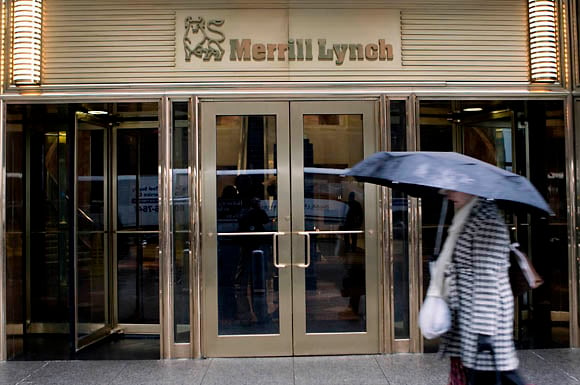If Bank of America Merrill Lynch isn't in talks to settle hundreds, if not thousands, of claims filed against it by former Merrill brokers, it should be, according to attorney David Gehn.
In an article this morning, The Wall Street Journal claimed that the bank is in discussions with lawyers for “more than a thousand former Merrill brokers” who left the firm after its shotgun merger with the bank in 2009. The brokers claim they had “good reason” to leave the firm and that they are owed unvested stock in deferred-compensation plans that they had at Merrill Lynch.
“An amicable negotiation would be less costly than litigating potentially thousands of claims at the [Financial Regulatory Authority Inc.],” said Mr. Gehn, a lawyer with Gusrae Kaplan Nusbaum PLLC who focuses on employment issues in the securities industry. He represents several former Merrill brokers with claims against the firm. “This could be devastating to them,” Mr. Gehn said.
Based on an award given to two Merrill brokers in Florida last month by a Finra arbitration panel, “devastating” may be understating it. The Finra panel awarded Tamara Smolchek and Meri Ramazio a combined $5.2 million in compensatory damages and another $5 million in punitive damages.
However, the Finra decision in Florida — which Merrill has appealed in Federal court, claiming the panel was biased — involved more than just unvested stock options. The compensatory damages included "unpaid wages, lost wages, lost book and value of business and reputation," along with unpaid deferred compensation.
An award of $1.17 million to two former Merrill brokers with a similar claim in 2010 could be more representative of the group. The total liability, if that case is the norm, would be about $1 billion, assuming that roughly one-third of the 3,000 brokers who left Merrill were to file claims.
Executives at the bank continue to assert Merrill has done nothing wrong. And the brokerage has prevailed in some of these arbitrations. A Finra panel in Miami in March ruled in Merrill's favor against former Merrill broker Thomas Anthony Zur. It required Mr. Zur to pay back just under $200,000 of a promissory note and denied his counterclaims for payment of deferred compensation from the firm.
“We believe these claims are without merit and are continuing to defend against them,” said Bank of America spokesman Bill Halldin. “Financial advisers who received stock awards understood that they would forfeit any unvested stock if they decided to leave the firm — like other employees who voluntarily terminate their employment. Merrill Lynch's acquisition by Bank of America alone didn't trigger any change to that, as an acquisition by itself does not provide any basis for these types of claims.”
Still, BAML may be wise to settle these claims rather than roll the dice with hundreds of other Finra panels.
“Irrespective of whether the panel [last month] was biased, the award is so detailed,” Mr. Gehn said. “It will be paraded out for every future panel arbitration.”







